 'Want to Stay Ahead?' is certainly a catchy title, which explains why it piques my personal attention in the first place, while browsing the book shelves leisurely at the Harris bookstore in Jurong Point.
'Want to Stay Ahead?' is certainly a catchy title, which explains why it piques my personal attention in the first place, while browsing the book shelves leisurely at the Harris bookstore in Jurong Point.Since I often like to support local authors, I just bought a copy for my personal library.
Surprisingly, it's a revised & updated book (first published in 2004) from the author, based in Malaysia as a creativity consultant, drawing on his experience in helping organizations implement a creative & innovative organisation.
Hence, its secondary title: 'How to Create a Creative Thinking Organisation'.
I am disappointed to say that the book reads more like a compendium of ragtag stuff from the author's master sifu, Edward de Bono.
All the fancy stuff from the master sifu like 'Lateral Thinking', 'Six Thinking Hats', 'Six Action Shoes', 'Six Value Medals' & 'Direct Attention Thinking Tools' are outlined in the book.
To my chagrin, the entire book also reads like an academic textbook because of its structured page/text layout, that goes 1.0., 1.1., 1.2., 2.0., 2.1., 2.2., 2.3., 3.0., & so on.
As I read further, I become quite "intrigued" about what the author has meant when he writes on page 11, under 2.1. 'Creative Thinking as a Breakthrough Strategy':
"... The ideas must be novel - different from what's been done before - but they can't be simply bizarre; they must be appropriate... "
My immediate response to that is "Why Not?"
Furthermore, the author unwittingly contradicts himself - being a de Bono trainer - when he writes on page 31, last paragraph, ending with:
"... When we apply this (lateral thinking) technique, we can use it in challenging what is out there or what is going on in our mind?... "
Looking back, the author is obviously not walking his talk.
Is it an inkling that the author prefers to "stay within the boundary", so to speak?
Most of the time the author is talking about how his clients are falling in love with all the de Bono's stuff after attending his training. I have no quarrel with that. What irks me most is that I don't get to read about any case studies or even anecdotes of 'aHA' moments.
To compound my displeasure, I don't get to read any of the author's own particular insights on creative thinking, other than rehashing what his master sifu has covered.
Sometimes, I just wonder why authors bother to write their books in the first place when they actually do not have any new ideas or perspectives of their own to share with the world.
Is it vanity at work? Or, is it sheer compunction just to have a book - with their name on it - to go with their professional standing as a consultant?
I don't mean to throw a cold wet blanket, but the harsh reality is that the book is really not up to my expectations of a creativity consultant. Sad to say, & with due respect to the author, there is no originality of thought, as well as no intellectual ballast at all.
The only relatively good points I can gather from the book are the few discussion questions at the end of each chapter in the book, which I reckon are quite useful for reader's reflection & introspection.
The Organisational Creativity Factors (OCF) Survey Questionnaire from the author is not too bad, in fairness to the author, although I must say it's not truly complete. I would venture to add in a sixth element, 'Opportunity Pursuit'.
This is because, in my professional opinion, without 'Opportunity Pursuit' in the final equation, so to speak, the creative thinking organisational culture, which the author has envisaged, is not sustainable.
To put it bluntly, in the long run, it is 'Opportunity Pursuit' as a deliberate systematic process that give true meaning & real value to organisational prosperity.
In the end analysis, should you get the book?
Regrettably, the answer is an affirmative NO!
However, if readers still fancy de Bono's stuff, then it is more worthwhile for readers to go directly to the source materials, rather than dabbling with rehashed second-grade materials.



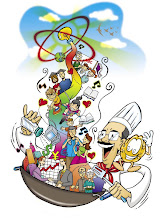
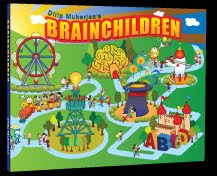



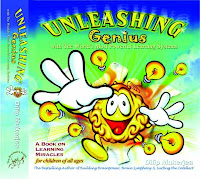
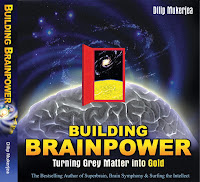
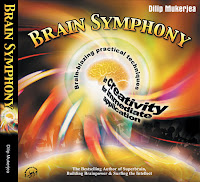





No comments:
Post a Comment